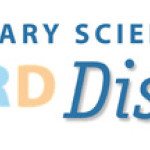- Industry: Astronomy
- Number of terms: 6727
- Number of blossaries: 0
- Company Profile:
Planetary Science Research Discoveries (PSRD) is an educational site sharing the latest research by NASA-sponsored scientists on meteorites, asteroids, planets, moons, and other materials in our Solar System. The website is supported by the Cosmochemistry Program of NASA's Science Mission ...
Angolo tra il piano dell'orbita dell'oggetto e l'eclittica (definito da orbita terrestre).
Industry:Astronomy
Un elemento con numero atomico 7; simbolo: N. It è comune nell'atmosfera terrestre e insieme a carbonio, idrogeno e ossigeno è essenziale per la vita.
Industry:Astronomy
Un elemento con numero atomico 26; simbolo: Fe. Il ferro è uno degli elementi più abbondanti nei pianeti rocciosi. È l'elemento più abbondante nelle carote metalliche interne.
Industry:Astronomy
Luogo in cui l'Apollo 11 sbarcò sulla luna il 20 luglio 1969; Mare Tranquillitatis.
Industry:Astronomy
The forceful striking of one body, such as a meteorite, against another body such as a moon or planet.
Industry:Astronomy
Two or more varieties of the same chemical element. Isotopes have different masses because they have different numbers of neutrons (for example <sup>18</sup>O and <sup>16</sup>O), thus they have different physical and chemical properties. Unstable isotopes undergo radioactive decay.
Industry:Astronomy
